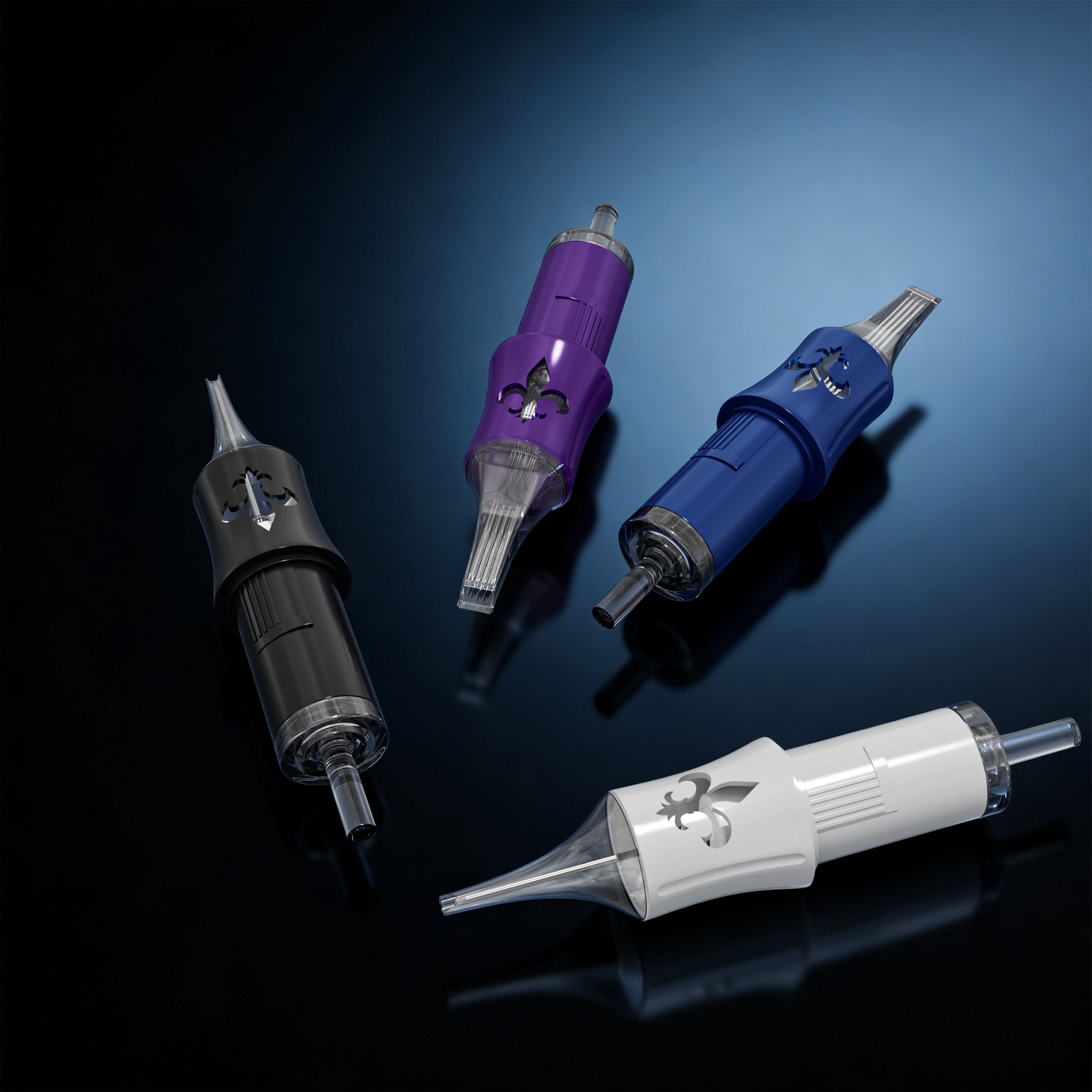The Role of Diet in Tattoo Healing: Fueling Your Skin’s Recovery
Tattoos are more than art—they’re a collaboration between your skin and the artist. But once the needle stops, the real work begins: healing. While proper aftercare (like using aftercare butter balm) is critical, your diet plays an equally vital role in how quickly and effectively your tattoo heals. Let’s explore how the foods you eat can accelerate recovery, reduce inflammation, and preserve your tattoo’s vibrancy.
Why Diet Matters for Tattoo Healing
A tattoo is essentially a controlled wound. The process of inserting ink into the dermis triggers an inflammatory response, prompting your body to repair damaged tissue and fight potential infections. Nutrient deficiencies or inflammatory foods can slow this process, leading to prolonged scabbing, fading ink, or even infections.
Key stages of tattoo healing include:
Inflammation (Days 1–3): Redness, swelling, and tenderness as your immune system responds.
Proliferation (Days 4–14): New skin cells form, and collagen rebuilds the damaged area.
Remodeling (Weeks 3–6): The skin matures, and the tattoo settles into its final appearance.
Each phase demands specific nutrients. Let’s break down the best foods to fuel recovery—and what to avoid.
Essential Nutrients for Tattoo Healing
1.Protein: The Building Block of Skin Repair
Protein provides amino acids like arginine and glycine, which are critical for collagen synthesis and tissue regeneration. Studies show that inadequate protein intake delays wound closure and weakens immune defenses.
Best Sources:
Lean meats: Chicken breast, turkey, and grass-fed beef (rich in zinc and iron).
Fish: Salmon and mackerel (packed with omega-3s to reduce inflammation).
Plant-based options: Tofu, lentils, and quinoa (ideal for vegans).
Pro Tip: Aim for 1.2–1.5g of protein per kilogram of body weight daily during healing.
2. Vitamin C: Collagen’s Best Friend
Vitamin C boosts collagen production, strengthens skin structure, and acts as an antioxidant to combat free radicals from UV exposure or ink oxidation. A deficiency can lead to fragile skin and poor scar formation.
Best Sources:
Citrus fruits: Oranges, grapefruits, and lemons.
Tropical fruits: Guava, kiwi, and pineapple.
Vegetables: Bell peppers, broccoli, and kale.
3. Zinc: The Immune System’s Shield
Zinc accelerates cell division, supports immune function, and reduces infection risk. Research on diabetic wound healing highlights zinc’s role in tissue regeneration.
Best Sources:
Seafood: Oysters, crab, and shrimp.
Seeds: Pumpkin seeds and hemp seeds.
Nuts: Cashews and almonds.
Note: Excessive zinc can inhibit copper absorption—stick to 8–11mg daily for adults.
4. Omega-3 Fatty Acids: Fighting Inflammation
Omega-3s (EPA and DHA) reduce pro-inflammatory cytokines, easing swelling and discomfort. They also support skin hydration, preventing scabs from cracking.
Best Sources:
Fatty fish: Salmon, sardines, and trout.
Plant-based oils: Flaxseed oil and chia seeds.
Supplements: Algal oil (vegan-friendly alternative).
5. Antioxidants: Protecting Ink and Skin
Tattoo ink generates free radicals during healing, which can fade colors and damage skin cells. Antioxidants like vitamins A and E neutralize these compounds.
Best Sources:
Vitamin A: Sweet potatoes, carrots, and spinach.
Vitamin E: Almonds, sunflower seeds, and avocados.
Polyphenols: Green tea, berries, and dark chocolate (70%+ cocoa).
Foods to Avoid During Tattoo Healing
Certain foods exacerbate inflammation, impair immunity, or interfere with skin regeneration:
1.Alcohol and Caffeine
Alcohol thins the blood, increasing bleeding and ink expulsion during tattooing. Post-session, it dehydrates skin and slows healing. Caffeine similarly dehydrates and heightens sensitivity.
Alternatives: Herbal teas or electrolyte-rich coconut water.
2. High-Sugar and Processed Foods
Sugary diets spike insulin levels, worsening inflammation. Advanced glycation end-products (AGEs) from processed snacks degrade collagen and elastin, leading to sagging skin and blurred ink.
Avoid: Soda, candy, and refined carbs like white bread.
3. Dairy and Eggs
Dairy products (especially conventional milk) contain hormones that feed pathogens, increasing infection risk. Eggs, despite their protein content, are linked to inflammatory responses and viral proliferation in sensitive individuals.
Alternatives: Unsweetened almond milk or oat milk.
4. Inflammatory Oils
Canola oil and hydrogenated fats promote oxidative stress, delaying healing. Opt for anti-inflammatory oils like olive or avocado oil9.
Hydration: The Overlooked Hero
Water comprises 64% of skin’s structure. Dehydration causes dryness, scabbing, and ink distortion. Aim for 8–10 glasses daily, and hydrate pre-tattoo session to plump skin for better ink absorption.
Pro Tip: Add cucumber or lemon slices for extra antioxidants.
Supplements to Enhance Healing
While whole foods are best, supplements can fill gaps:
Collagen peptides: Supports dermal repair.
Vitamin D3: Enhances immune response (2,000 IU/day).
Probiotics: Gut health impacts skin immunity—try fermented foods like kimchi or supplements.
Sample 7-Day Meal Plan for Optimal Healing
Day 1:
Breakfast: Greek yogurt (dairy-free alternative) with berries and chia seeds.
Lunch: Grilled salmon salad with spinach, avocado, and olive oil dressing.
Dinner: Quinoa-stuffed bell peppers with lentils.
Day 2:
Breakfast: Smoothie with kale, pineapple, almond milk, and protein powder.
Lunch: Turkey and hummus wrap with carrot sticks.
Dinner: Stir-fried tofu with broccoli and brown rice.
(Continue with varied, nutrient-dense meals focusing on protein, vitamins, and omega-3s.)
How Our Products Support Your Healing Journey
Pair your diet with science-backed aftercare:
Antimicrobial Balm: Infused with tea tree oil and vitamin E to prevent infections.
Hydrating Lotion: With hyaluronic acid and ceramides to lock in moisture.
Herbal Patch: A plant-based adhesive to protect fresh tattoos while allowing airflow.
Final Thoughts
Your tattoo is an investment—nourish it wisely. By prioritizing anti-inflammatory foods, staying hydrated, and avoiding dietary pitfalls, you’ll ensure vibrant, long-lasting results. Remember, healing isn’t just about what you put on your skin but also what you put in your body.
Ready to upgrade your aftercare routine? Explore our Neebol Store for products designed to complement your healing journey.
#Tattoo healing diet# # foods to avoid after tattoo# #hydration for tattoo aftercare# #best vitamins for tattoo healing# #reduce tattoo inflammation# #collagen for tattoo recovery# # vegan tattoo aftercare#








Share:
Hand-Poked vs. Machine Tattoos: Pros & Cons | Tattoo Methods Guide
Exploring the Benefits of Wireless Tattoo Kits